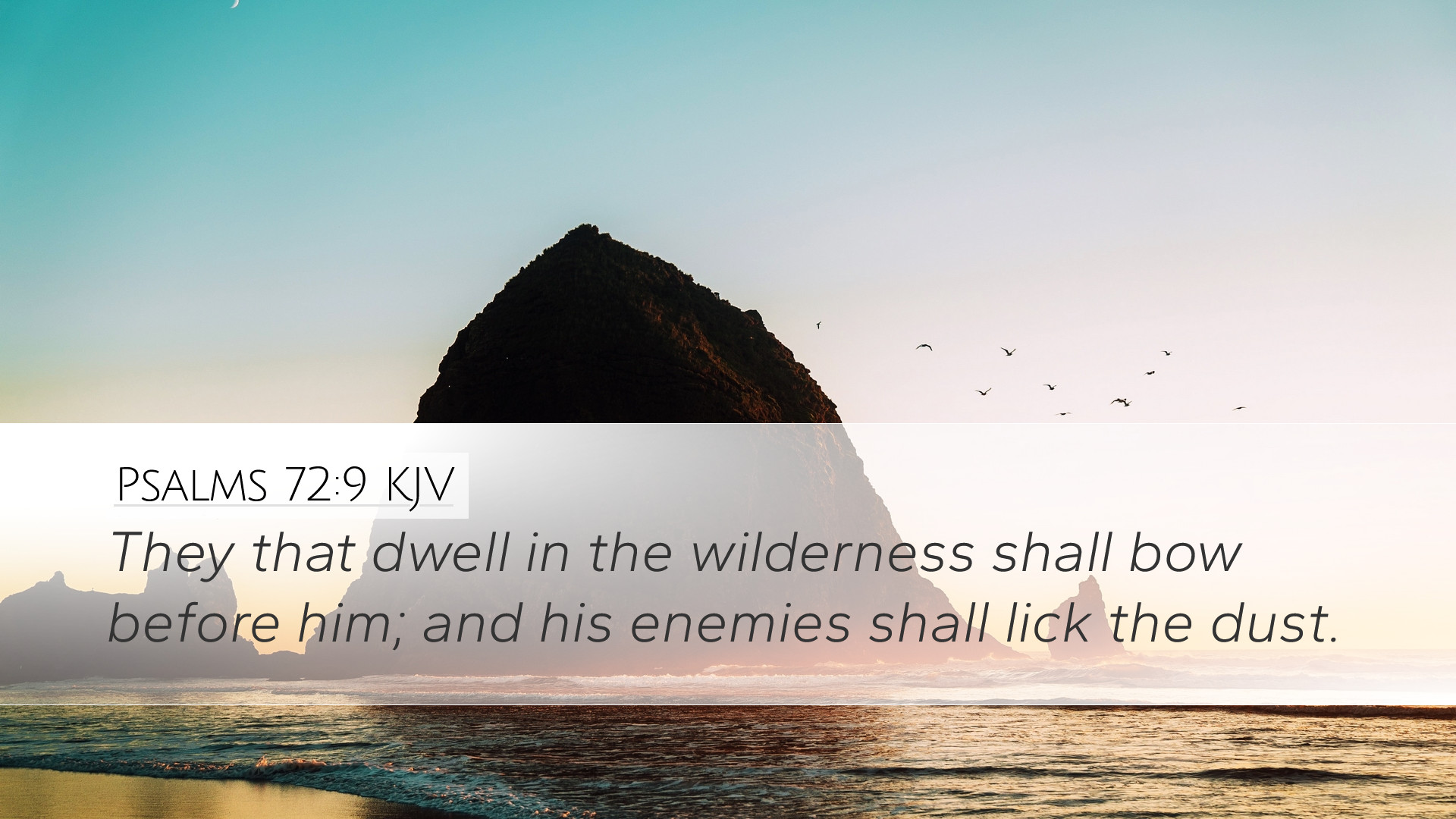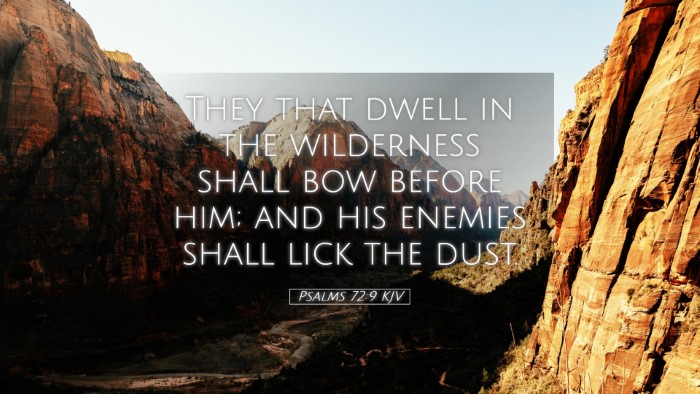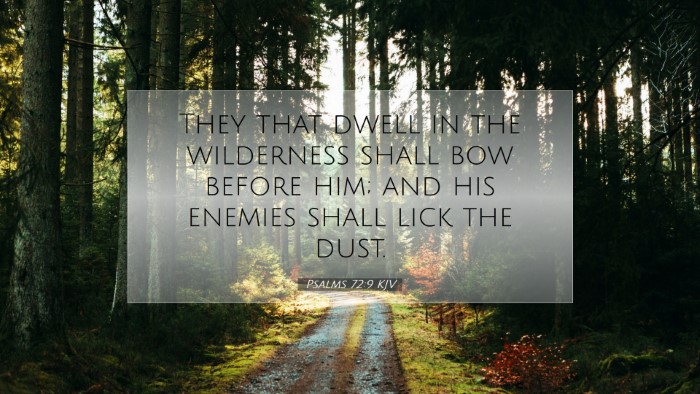Psalms 72:9 Commentary
Verse: "They that dwell in the wilderness shall bow before him; and his enemies shall lick the dust."
Introduction
The verse from Psalms 72:9 is rich in imagery and significance. It encompasses themes of submission, reverence, and judgment. This commentary seeks to draw insights from renowned public domain scholars like Matthew Henry, Albert Barnes, and Adam Clarke, providing a comprehensive understanding of this profound text.
Context of Psalms 72
Psalms 72 is traditionally understood as a royal psalm, attributed to Solomon. It depicts the ideal reign of a king, envisioned as a figure who embodies justice and righteousness. The broader themes of this psalm reflect God’s kingdom, where peace and justice prevail. Verse 9 specifically addresses the reaction of those in remote places and enemies towards this reigning king.
Commentary Insights
Matthew Henry's Perspective
Matthew Henry emphasizes the geographical and spiritual implications of the verse. He notes that “they that dwell in the wilderness” symbolizes those who are often marginalized or dwell in desolation. This submission indicates a comprehensive acknowledgment of royal authority, suggesting that even those in the farthest reaches of the earth cannot escape the sovereignty of God’s anointed. Henry elaborates that this gesture of bowing signifies both humility and a recognition of the king's rightful dominion.
Albert Barnes' Interpretation
Albert Barnes highlights the poetic nature of this verse. He interprets “wilderness” as a representation of the Gentiles or nations that were once distant from the covenant of God. Barnes points out that the act of bowing before the king symbolizes the recognition of God’s authority and governance among all peoples, breaking down barriers of exclusion. He further explains that the phrase “lick the dust” denotes humiliation and defeat, illustrating the ultimate submission of the king’s enemies to his rule.
Adam Clarke's Analysis
Adam Clarke provides a historical and theological depth to the verse. He connects the imagery of the wilderness with the arid places of the earth—showing that God's kingdom extends even to the most desolate. Clarke remarks that the enemies licking the dust is a powerful metaphor for total subjugation. This act symbolizes the absolute defeat of rebellion against God's appointed authority and serves as a broader illustration of the triumph of God’s righteousness over wickedness.
Theological Themes
- Submission to Authority: The verse illustrates the expected response of all peoples, whether near or far, to God's ordained king. It portrays the universal truth that every knee shall bow before the true King.
- Divine Sovereignty: The imagery reinforces the notion of God’s complete control and reign over all nations, positioning God as the supreme ruler who brings all under His authority.
- Judgment and Restoration: The act of bowing is not just submission; it speaks to the restoration of order and righteousness brought about by the king’s reign. It foreshadows the fulfillment of prophecy and God's redemptive purposes.
Application for Today
For modern-day pastors, theologians, and students of the Word, Psalms 72:9 serves as a reminder of the inclusive nature of God’s kingdom. It challenges us to consider who we view as ‘the wilderness dwellers’ in our context—those marginalized or overlooked in society. It also calls for a response of humility before God’s authority in our personal lives and in the broader cultural landscape.
Conclusion
In summary, Psalms 72:9 offers a compelling vision of God's kingdom where authority is recognized and enemies are subdued. It invites reflection on the nature of God’s governance, the hope found in righteous leadership, and the ultimate fulfillment of God’s promise to redeem and restore all people.


